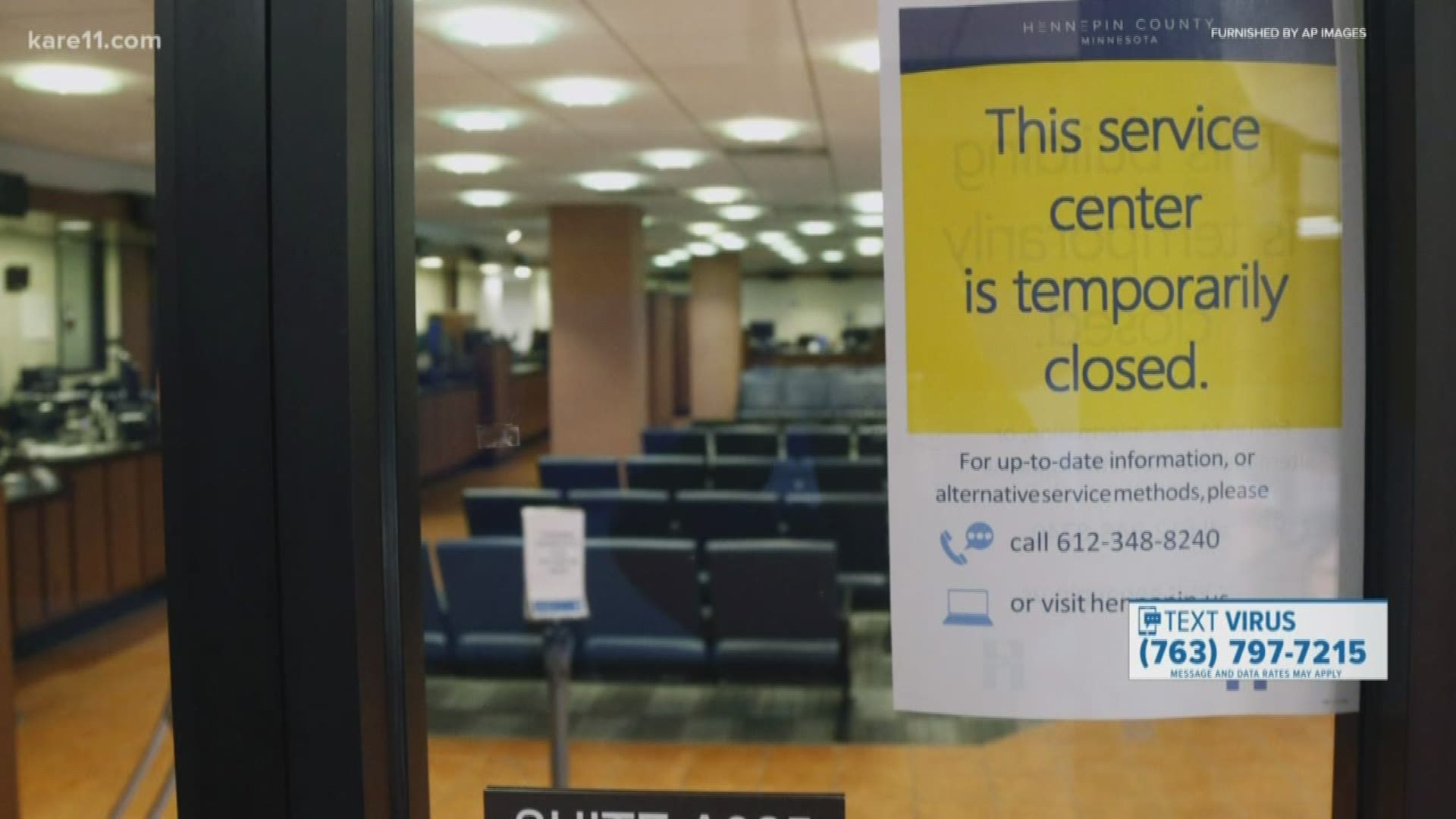MINNEAPOLIS, Minnesota — From concerts to sporting events, gatherings are being canceled as people are told to practice social distancing. It includes avoiding crowds and staying at least six feet away from other people. The Minnesota Department of Health (MDH) says social distancing will help protect people who are most vulnerable to COVID-19 and help keep the health care system from getting overwhelmed.
"From the public health standpoint, social distancing is really extremely important," said Dr. Monte Johnson, vice president of medical affairs at St. Francis Regional Medical Center and part of the system command structure at Allina Health.
Dr. Johnson said everyone should be practicing social distancing right now. So how many people is too many?
President Trump is recommending avoiding social gatherings of more than 10 people. MDH is recommending canceling or postponing events with more than 50 people while saying that events with fewer than 50 people should not be held unless it's possible to do so with 6 feet between people. Events should also be canceled that include more than 10 people where the majority of participants are at a higher risk for severe illness from COVID-19. Read more of MDH's strategies to slow the spread, here.
"Those guidelines are certainly out there. As few people as you can get in one place is really I think the best rule of thumb," Dr. Johnson said. "Even with your family members try to keep some space if you can."
So what if your child wants to have a friend over?
"I would say right now, what we know and where we're at with this, I would encourage folks to try other avenues. Use other opportunities like we talked about with technology and those types of things to maintain contact with each other," Dr. Johnson said.
What about grandparents who want to visit or who usually help take care of the grandkids?
I think each family has their own issues and their own circumstances and so you have to do what's right for your family, keeping in mind that we know that this virus can be, seems to be a little bit worse in folks who are older," Dr. Johnson said. "So making sure that if anybody in your family is showing signs of illness, fever, cough, shortness of breath, those types of symptoms, that they're really staying away from others in their family."
MDH is recommending that older adults (especially people 70 and older) or people with underlying health conditions that put them at higher risk—this could be things like heart or lung disease, or people who have a weak immune system—should stay home and avoid gatherings where they could be exposed.
So what about the outdoors? Dr. Johnson is encouraging people to go outside, as long as they are still practicing social distancing.
"Yes, absolutely. This is not confined to your house and close the door, that kind of thing," he said. "You can talk a walk with your friend or family; stay six feet apart. Go for a bike ride, absolutely get outside." But Dr. Johnson said it's probably best to avoid playground equipment.
It's hard to avoid trips to places like the grocery store but while out and about, Dr. Johnson said remember to cough or sneeze into your sleeve and not into your hand. Also, wipe down surfaces and frequently wash your hands.
Metro Transit is asking customers to only travel if it's essential and when using public transit, riders should practice social distancing.
So how long could this last?
"I don't know that. I honestly don't. I think we'll have to continue to listen to our state health experts who are really on top of this outbreak," Dr. Johnson said. "It's not isolation, it's social distancing and being smart about who and where we're having contact with folks as much as we possibly can."
And remember, stay home if you're sick.

